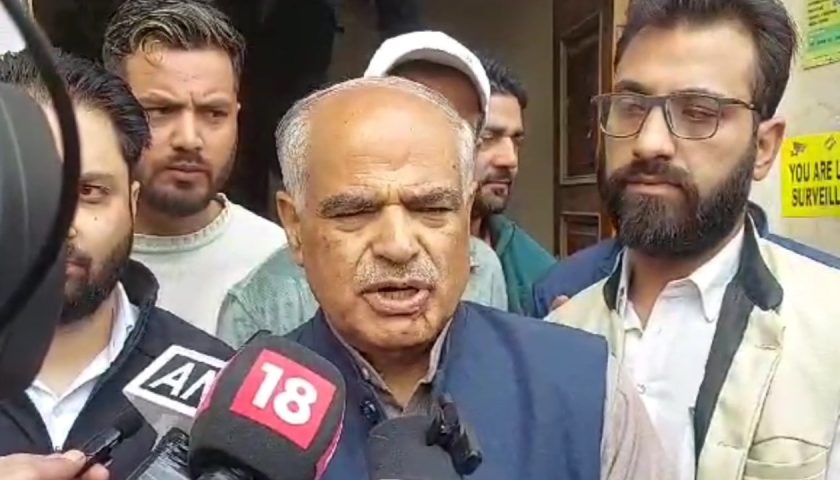Srinagar, December 8, 2023: Former Jammu and Kashmir Chief Minister Omar Abdullah has ignited a political firestorm by alleging that the recently passed Jammu Kashmir Reservation Bill is solely intended to benefit the Bharatiya Janata Party (BJP) in the upcoming elections.
Abdullah, a prominent leader of the National Conference party, expressed strong reservations against the bill, claiming it grants backdoor entry to the Legislative Assembly for members of the Kashmiri migrant community and displaced persons from Pakistan-occupied Kashmir. He views this move as a calculated attempt to bolster the BJP’s political position in the region before the upcoming polls.
Abdullah’s primary objections to the bill center around the following concerns:
- Undermining the existing reservation system: He believes the bill unfairly disrupts the established reservation system for other communities, potentially causing resentment and division.
- Lack of transparency and consultation: The timing of the bill just before the elections raises questions about its genuineness and transparency. Abdullah criticizes the lack of consultation with various stakeholders before its implementation.
- Political maneuvering: Abdullah firmly believes that the bill is nothing more than a ploy by the BJP to manipulate the political landscape in their favor by increasing their legislative seats through indirect means.
The BJP has vehemently denied these accusations, defending the bill as follows:
- Addressing long-standing grievances: The bill aims to address the historical injustices faced by the Kashmiri migrant community and displaced persons by granting them rightful representation in the Legislative Assembly.
- Justice and equity: The BJP argues that the bill upholds the principles of justice and equity by giving these communities a voice in the political process.
- Due process followed: The party claims that the bill was formulated after due consideration and consultations with relevant stakeholders.
However, the debate surrounding the bill remains heated, with various political parties and stakeholders expressing divergent views:
- Opposition parties: Echoing Abdullah’s sentiments, other opposition parties have also voiced concerns about the bill’s political motives and its potential to disrupt existing social and political dynamics.
- Civil society groups: Some groups have expressed apprehension that the bill might be misused to suppress dissent and curtail fundamental rights.
- Community leaders: While many leaders from the Kashmiri migrant community and displaced persons support the bill, others have expressed reservations about its potential consequences and the long-term impact on social harmony.
Amidst these opposing viewpoints, the Jammu Kashmir Bill has become a major point of contention in the region. The upcoming elections will undoubtedly be a referendum on the bill and its implications for the future of Jammu and Kashmir. Only time will tell how this issue will unfold and what its ultimate impact will be on the political landscape of the state.






